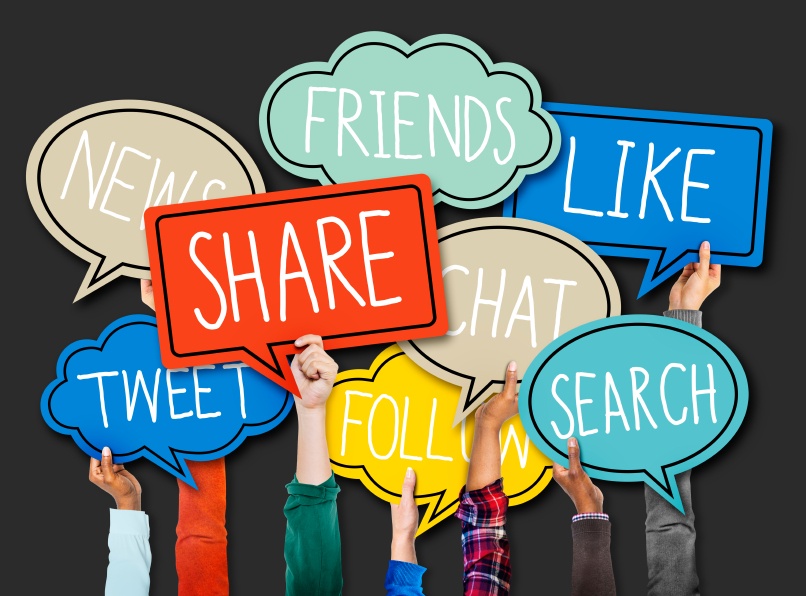5 Myths About Social Media You Should Ignore in 2016


With any fairly new, highly successful trend there’s going to be speculation. There will be people who claim they know how to master something, before the actual definition of success has even been defined. There will be people to telling you to do something one way, when another way may actually work better for your company. So, what should you do? Follow the steps that make the most sense for you. Here are some common myths about social media that have been floating around, and that we have found to be false. Keep in mind, this list may not ring true for you, but there are definitely lessons to be learned here. Looking forward, you’ll be able to decipher for yourself the tips to follow and those to ignore.
Myth 1: Social is Just for Kids
So maybe they started the trends, and maybe we’re just following in their footsteps, but the youth of today is definitely not the only generation using social media on a daily basis. Over 75% of adults ranged 30 to 49 with internet access are active on social media. Between the ages of 50 and 64 that number is still greater than 50%. More than 25% of Twitter’s users are over 30 years old, and 60% of LinkedIn’s audience is between 30 and 64. Still think social is just for the kids? Okay, a few of them are. Instagram and SnapChat are mainly used by the 18 to 24 demographic, but in just a few short years those “kids” are going to be your entry-level employees.
If you’re the facilities manager for a university or college campus, social shouldn’t even be a question for you. Or even if you’re managing a corporate office. People are opting to gain access to information not through traditional methods like website and news outlets, but through their favorite social platforms. Your online presence should be compared to being as influential as your office lobby’s first impression.
Myth 2: Twitter is Dead
If you’ve been following social media news within the last year, you’ve probably heard that Twitter is having a rough time. Their stock has steadily dropped over the past months, and their user base is at a standstill.  People have cried “its the death of Twitter” among other obscenities. However, if you may remember, people were saying the very same thing of Facebook just a few years ago. What Facebook has done is proven everyone wrong – in a very big way. Instead of fading into a distant internet memory, they have changed the way users interact with Facebook, by adapting to the changing needs of their customer. By purchasing relevant technology (like Instagram) and carefully shifting public perception of their company, Facebook has shown us they’re in this for the long haul.
People have cried “its the death of Twitter” among other obscenities. However, if you may remember, people were saying the very same thing of Facebook just a few years ago. What Facebook has done is proven everyone wrong – in a very big way. Instead of fading into a distant internet memory, they have changed the way users interact with Facebook, by adapting to the changing needs of their customer. By purchasing relevant technology (like Instagram) and carefully shifting public perception of their company, Facebook has shown us they’re in this for the long haul.
Twitter has shown such promise as well. Recently they have signed an exclusive deal with the NFL, giving them the right to live stream Thursday Night Football. Something no other social site can say. Twitter has found a little niche within their audience, that they can be tied to the entertainment industry. For instance, during the season primer of hit shows like Game of Thrones or during the Oscars, there is no other platform that keeps comments and shared content in the same place like Twitter can. Along with this comes breaking news. Since Twitter shares every tweet with every user, their audience can expect they are receiving the most up-to-date information on specific topics. Which is something Facebook and LinkedIn can’t say, since their algorithms alter the order in which posts appear. Twitter isn’t dead, they’re just going through their teenage years, and are figuring out who they are.
Myth 3: Ignore Negative Comments
The entire point of being on social media as a company is to provide an engaging discussion with your customers. By ignoring them, you’re telling them they don’t matter. It can sometimes be difficult to respond to negative posts in a professional way, but it is absolutely imperative that you do.
Enlist in the help of your public relations department if you need assistance with a particularly difficult situation. Always address their needs and offer to take the conversation offline to avoid a back-and-forth battle. If they’re asking for help, give it to them. If they’re criticizing how your facility operates, thank them for their thoughts and let them know their suggestions will be passed along to the appropriate team. People just want to be heard, and even though it may come off the wrong way, you should always respond in a positive way.
Myth 4: Post 24/7
Recently we have found that many of the “social media gurus” out there suggest companies post everyday on every social site. For some companies this may work. If you’re running the social media pages for a large corporation, or for a university with tons of interaction with your students, posting multiple times per day could work for you. And for everyone it might work on fast moving platforms like Twitter. But for workplace managers for corporate offices or independent companies, posting on Facebook and LinkedIn multiple times per day may not get you the results you want. Your messages should be interesting and relevant, helping or teaching your followers in some way. If you post constantly hoping to gain more engagement, you will soon learn that this is the wrong approach. You should be selective with what you share, err on the side of posting too little over too much.
Myth 5: Hashtag Everything
Now, first let’s be sure to say that hashtags are a good thing! Here’s an article on how to use them properly. The issue is over-using them. Studies show that using two hashtags per post is ideal, and prevents your post from looking as though it lacks focus. You can use hashtags for a variety of instances, from trending world events to helping your customers follow a certain topic about your company.
Social can often be a process of trial and error, it definitely was for us. It takes a bit of time to not only build your following, but understanding what it is that they want to see from you as a company. Take these myth busters with a grain of salt, some of them may ring true for you, and others may not. Hopefully it will have you questioning how your social media team should approach your online presence moving forward. Happy posting!
